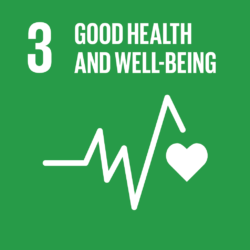
The Purpose of Health Care Reform

It’s now 2020. Noting the 10-year distance between now and the deadline for the 2030 Sustainable Development Goals the United Nations (UN) has declared that this decade needs to be the “Decade of Action.”
The World Health Organization (WHO) recently released its list of this decade’s urgent health priorities. Many of these directly link into the SDGs.
We have 10 years to save our health and our planet.
This is an area in which purposeful work will prove to be invaluable. We need our best and brightest uncovering the routes to take to save the health of the planet and the people.
One of the most obvious examples of something affecting both our and the planet’s health is air and water pollution.
Across the globe more and more people are suffering from conditions brought on by contaminated air and lack of clean water. Millions are dying because of this exposure and that number will only rise as our pollution levels get worse.
So how do we fix our air?
Finding the best way to do this is proving to be an international endeavor as innovators from across the globe are coming forth with potential solutions.
This year will see the culmination of the NRG COSIA Carbon XPRIZE (carbon.xprize.org), a global competition that was set up to bring forth new breakthroughs and technologies that will reduce the planet’s CO2 levels.
Meanwhile, there are carbon capture facilities being run across the world (including four in Canada), pulling in more than 30 megatonnes of CO2 a year. Sadly, this is hardly a drop in the bucket.
This work is so very important and purposeful. Breathing is obviously a fundamental need and clean air should not be something we blow off as a problem for future generations to solve.
Let’s hope we uncover a solution.
Another vital area to look at is how do we reach the unreachable?
Billions are suffering in conflict zones, dealing with terrors no one should face for reasons beyond their control.
What can we do to ensure they still have access to health care, a vital service we so quickly take for granted?
Groups like Doctors Without Borders and CARE International are good examples of what we need to be doing and the impact purposeful work can have.
We need to find ways to ensure everyone has access to health care. It’s the best way to ensure we have a fair and just world.
Of course this inequality is seen in other areas as well. Poverty and income inequality are both leading to health problems across the globe, as people can’t afford medical access for reasons like social status and race.
One solution to this is the Health in all Policies (HiaP) approach. This is a method that has been used with great success before.
HiaP requires all areas of government to consider the health implications of their policies. Introducing this requirement reduces inequality levels because representatives start looking at the long-term effects of their policies and actions and seek out solutions that level out the playing field.
This is without a doubt purposeful work.
Access to medication is another area of health care that falls under the umbrella of purposeful work.
If you live in Canada and have a quality drug plan (and stable health) you may not be aware of how uneven drug access is. The truth, however, is that access to medication is erratic and unequal even though international law deems it part of our right to health.
According to the World Health Organization (WHO) approximately 30% of the world’s population do not have access to the treatment they need.
Brilliant and caring minds are looking for solutions.
The Access to Medicine Foundation, for example, is working with pharmaceutical companies to increase access in low- and middle-income countries. The National Pharmaceutical Council (npcnow.org) is exploring how to increase access in the U.S.
In Canada, of course, you have the ongoing move towards a Pharmacare system. The work being done to create a system that increase and equalize drug access is vital for the health of Canadians. As it stands, though, the regulation changes will lead to far fewer drugs being allowed into our health system. Groups like the Canadian Organization for Rare Disorders are working to ensure this problem is seen and amended before it’s too late.
Helping people access the meds they need to survive and thrive is obviously purposeful and important. Let’s hope these groups make an impact.
Health care is wonderful and needed. It is not, however, perfected as of yet.
So many areas across the globe need highlighting and fine-tuning in order to ensure everyone’s needs are met and good health is shared by all.
The people putting in the legwork and the mind work to uncover solutions deserve all our praise and gratitude.

